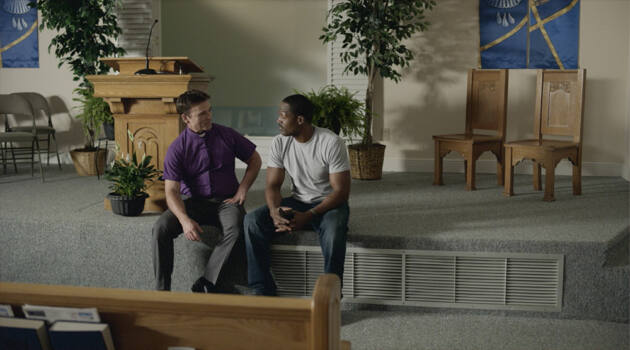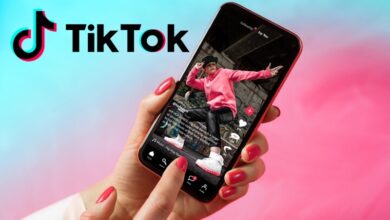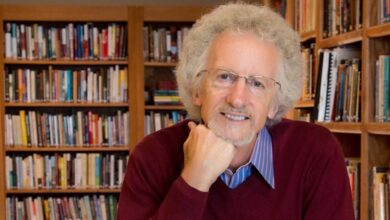Rudy from The Cosby Show stars in ‘My Brother’s Keeper’
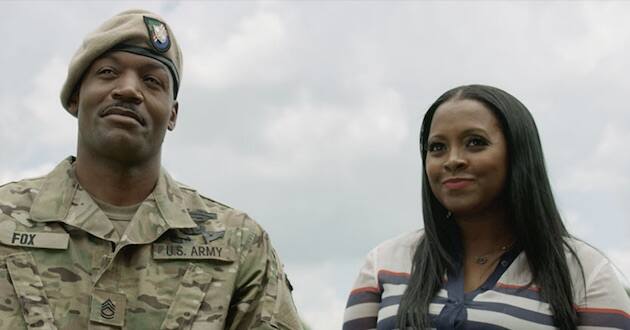
The story in the film My Brother’s Keeper is a familiar story to many military service members who return from deployment. It’s also the story of those who strive to help them.
A soldier returns from service to an almost alien environment. Home has lost its sense of comfort and he must find a way to rejoin this foreign land while reckoning with the trauma he brings back.
The film shares the events of returning war veteran SFC Travis Fox who has one more battle to fight – PTSD. Fox and his best friend SFC Ron “Preach” Pearcy (Joey Lawrence) are in their 6th combat deployment when Preach and his entire Ranger platoon are killed in a deadly improvised explosive device attack. Travis returns to his hometown to settle the affairs of his parents who had passed away years

before. In searching for answers about his parents, he also discovers a new obstacle in PTSD. He finds support from church counselor, Tiffany Robertson (Keshia Knight-Pulliam) and slowly begins to rediscover his faith in God, until he discovers a secret. Travis uncovers a secret hidden by his best friend Donnie Berry (Robert Ri’chard) that threatens his new-found faith, restores his guilt, and causes him to consider the unthinkable.
Keshia Knight-Pulliam’s role in this tale is integral to Fox’s mental health. A veteran actress, Keshia is well-known to viewers as a having portrayed Rudy Huxtable on The Cosby Show for eight seasons. But these days, Keshia counts acting as but a small part of her life and career. As she is now able to choose which roles fit her passions and her availability, Keshia’s time is open for other endeavors. Entrepreneur, partner in a venture capital fund, mom – she says she loves it all. ‘You’ve got to keep doing things that inspire you, that just speak to your spirit. and I do.”
I managed to catch up with Keshia Knight-Pulliam between projects to talk about her role as Tiffany, a mental health counselor in the film My Brother’s Keeper which is currently streaming on Amazon, Vudu and other services.
You have such diverse interests. When projects come along, do you feel the freedom to say, ‘Not this time’?
Well, I kind of look at it from different perspectives. If it’s something that completely doesn’t resonate with me or doesn’t have synergy with me or just doesn’t – granted my characters are different and diverse and they’re not all going to be like me, but there is a level of just integrity, the integrity that I approach everything with completely.
The women you portray, they’re written to be very strong, and the flavor that you bring to it is such a strength of character. From the Lifetime Network movies to House of Payne – do you feel like you have to connect to these women before you choose to portray them?
I think you definitely have to connect to them because that’s the only way you can bring them to life in a very honest and authentic way. And even though you’re an actor, a little piece of you kind of comes through by virtue of it being you. It’s also important to me, especially as a mother to a daughter, representation matters. You know, you don’t know to dream it unless you see it unless it exists. And I have a little person who’s watching and who’s learning. I think that it’s not just about my daughter, but it’s about all of the little girls out there.
And what a strong community of women you have surrounding you.
We come from a really large, tight knit, boisterous bunch and family is everything. I love everything that I do from being an entrepreneur, being an actor. But you do it to share it with the people that you love. You get to leave a legacy behind for generations to come. It’s definitely about – for me – leaving the world a better place.
That’s something that’s important in this movie of course. A soldier returning home to a very broken family situation…
…And it’s him fighting – everything that Travis is going through – the PTSD and with all that we’ve been through this last year, it’s something that people can relate to. Mental health is real. It’s a conversation that a lot of times people feel uncomfortable to have. They don’t want to have it, but it’s definitely a necessary conversation. I want to say, even in faith-based communities, you have to acknowledge it’s real and the best thing you can do, there are different counselors or what have you, but getting people the help that they need and not making them feel as though they’re alone.
That’s something that your character normalized. I love the scenes with group therapy. When Travis joined the group, you guys didn’t pander to him. It was just sort of, ‘Hey, here’s a chair, have a seat, join our family.’ Your character Tiffany pushes him without being pushy.
It’s very much being present in the moment. You know, when you’re there, when you’re on set with these actors, being honest and just being authentic. So I can’t sit here and make up some, ‘Oh, I did this and this premeditated’ and what have you, because that’s just not how my craft works. But for me, it’s completely just being honest and authentic and present in that.
The movie focuses a great deal on characters’ Christian faith, and honestly the ending was so inspiring and left me in tears (in a good way). Would you mind sharing a little of your faith story?
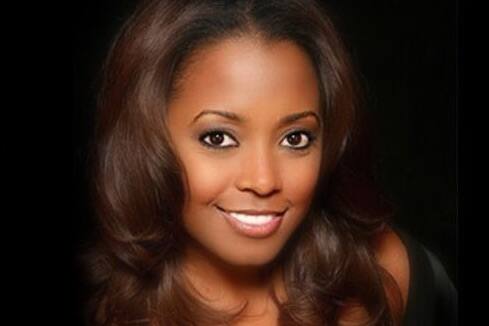 I am definitely spiritual versus religious – I’m Christian, but the reason I say spiritual is because it’s from a very inclusive perspective versus passivity. And it’s really simple. We know about treating people the way we desire to be treated and being very careful about the energy in which you present and you put out to the world. I know that words are powerful. I believe in your thought, word, and deed coming into alignment – that is what manifests in your life. So I police my words very carefully. And it’s really just about an overall love of human beings and not just human beings, but just our world and everything that’s within it. My grandfather, actually, a lot of people don’t know this, but he was a pastor. So you know, of course knowing that piece of it, but it’s as you grow and as you evolve, embracing the universal spirit that is all of us, that is love – for me – is the most important thing.
I am definitely spiritual versus religious – I’m Christian, but the reason I say spiritual is because it’s from a very inclusive perspective versus passivity. And it’s really simple. We know about treating people the way we desire to be treated and being very careful about the energy in which you present and you put out to the world. I know that words are powerful. I believe in your thought, word, and deed coming into alignment – that is what manifests in your life. So I police my words very carefully. And it’s really just about an overall love of human beings and not just human beings, but just our world and everything that’s within it. My grandfather, actually, a lot of people don’t know this, but he was a pastor. So you know, of course knowing that piece of it, but it’s as you grow and as you evolve, embracing the universal spirit that is all of us, that is love – for me – is the most important thing.
Can you give me a glimpse of what you would like the message in My Brother’s Keeper to do for people’s lives?
I want it to open the conversation. I want people to come to enjoy it, to realize that no matter what you’ve gone through, what you’re going through, that this too shall pass. It’s something that regardless of whether you’ve been in the military, if you’re in church, if you’re not, you can come. Maybe have somebody like this – maybe they’re undiagnosed. You know, people are all weather and storms. Everyone has their stuff, so I hope it creates a space of empathy and understanding and allowance and acceptance, and just starts the conversation and hopefully those people who need the help can get the help. Because that’s ultimately what it’s about.
–Kimberly Carr – Digital Media Producer for CBN, a news partner of Metro Voice



